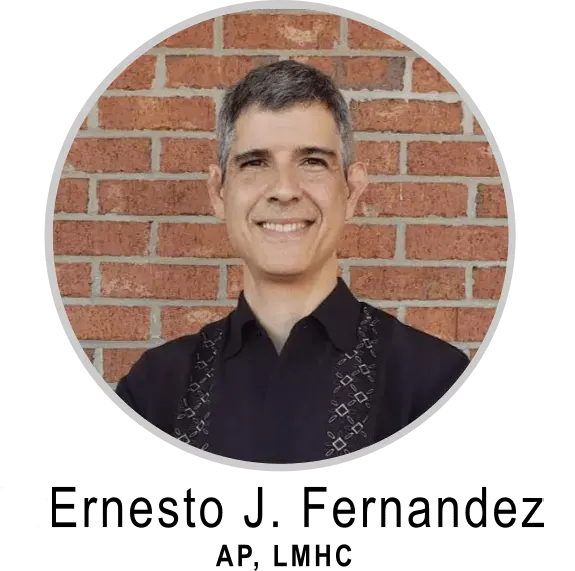February is National Heart Health Awareness Month
February 12-18th is Heart Failure Awareness Week
According to the World Health Organization (WHO), cardiovascular disease is the world’s number one cause of death, killing over 17 million people every year which is approximately one person every 34 seconds.
Cardiovascular disease is called the silent killer, because often for many people the first and only symptom is a fatal heart attack or stroke and encompasses the entire scope of heart and circulatory problems. Therefore, it’s very important to learn and recognize both the early and serious signs of cardiovascular disease to get proper screenings, implement lifestyle changes, and receive appropriate treatment to protect your heart and blood vessels to improve your overall health, well-being, and quality of life.
Signs and Symptoms
The quality of function of the heart and blood vessels directly affects the quality of function of the entire body and the opposite is also true. The quality of function of the other systems of your body directly affects the quality and function of the heart and blood vessels as well. It’s a multidirectional relationship between all the parts of the body and the heart. Therefore, there’s a wide range of symptoms that can emerge revealing not only what’s happening with the cardiovascular system, but the relationship of the cardiovascular system with specific parts of the body.
The signs and symptoms listed below cover the entire range of cardiovascular disease from heart weakness on one end of the continuum to excessive energy, tension and/or obstruction of heart and/or blood vessels on the other end. Clients are often surprised to discover that they had symptoms for years before their heart attack or stroke and didn’t identify them as cardiovascular symptoms therefore never reported them to their doctors.
The purpose of the list below is to sensitize you to the variety of both early and late-stage signs and severe symptoms that can be an indication of dysfunction and impairment in the cardiovascular system and to seek professional assistance upon recognition of these signs to prevent cardiovascular disease.
Temperature Regulation:
Cold hands and feet
Cold arms and legs
Chronically feels cold when the environment is not
Excessive or spontaneous perspiration during the day with mild exertion
Profuse sweating for no apparent reason
Night sweats
Hot palms, soles of feet and center of chest
Low grade fever
Malar flush
Color:
Ruddy complexion
Red or flushed face
Blue lusterless complexion
Purple complexion
Pale complexion
Pale lips
Blue lips
Purple lips
Mouth:
Chronic tongue ulcers
Purple tongue
Deviated tongue
Bitter taste in the mouth
Chronic dry mouth and thirst
Respiration:
Shortness of breath – especially with exertion
Weak cough
Persistent cough
Asthma
Shallow breathing and panting
Chest:
Palpitations
Oppressive feeling in chest and heart
Faint mild pains in the chest that goes away within seconds
Stabbing pain over the heart
Severe intermittent pain in the chest and/or arm
Mind and Emotions:
Difficulty dealing with stress
Easily overwhelmed
Chronic anxiety especially in the evenings
Chronic depression
Chronic irritability
Chronic physical restlessness
Chronic mental restlessness
Easily startled
Forgetfulness
Poor memory
Poor concentration
Frequent mental confusion
Sudden frequent manic episodes with no history of mental illness
Excessive talking
Aggressiveness
Violently lashing out
Incoherent speech
Uncontrolled laughter or crying for no apparent reason
Muttering to oneself
Psychosis
Sleep Quality
Excessive dreaming disturbing sleep
Chronic insomnia (wakes up frequently)
Miscellaneous:
Deep yellow urine (not from vitamins)
Scanty dark urine
Persistent constipation with no previous history
Fatigue and/or listlessness
Dizziness and/or vertigo
Tinnitus
Low back soreness or pain
Irregular menses with profuse menstrual flow
Swelling of the abdomen
Swelling of the legs, ankles and/or feet
Risk Factors
Below is a list of factors that increase your risk for cardiovascular disease. Fortunately, most of these factors are lifestyle related and can be changed.
Obesity
Diabetes
Chronic pain
Chronic high stress
Long-term unresolved mental health issues
Social isolation
Living and/or working in highly negative and/or conflictual environment
Sedentary lifestyle
Smoking
Frequent drug and alcohol use
Inflammatory diet
Brief comparison and contrast between Western Medicine and Oriental/Functional Medicine in relation to the diagnosis and treatment of cardiovascular disease
In Western Medicine (WM) there are 10 primary distinctions in diagnosing cardiovascular disease:
Size of the heart
Degree of blockage of the blood vessels
Function of heart valves
Quality of circulation
Blood pressure
Heart rate
Heart rhythm
Lipids levels (cholesterol, LDL, HDL)
Inflammation markers
Genetic factors
These variables can be evaluated through imaging, blood work and diagnostic devices
Western Medicine has developed very effective life-saving surgical procedures and medicines for people suffering from cardiovascular disease. Western Medicine is very good at identifying and treating macro-circulation problems (larger blood vessels). However, one of the limitations of the Western Medicine approach in treating cardiovascular disease is that they focus on treating the effect, not necessarily the root causes of the problem.
For example, once a person is prescribed heart medications, blood thinners, cholesterol medication, etc., he, or she most often has to continue taking these medicines for their entire life because the underlying (behavioral, psychological, dietary, lifestyle) reasons for the dysfunctions are seldom addressed. Even certain surgical procedures like “Stents”, which save lives, often need to be redone because they get clogged up again in a few years.
In contrast, Oriental Medicine has 12 primary distinctions for diagnosing heart syndromes:
Heart Qi Deficiency
Heart Yin Deficiency
Heart Blood Deficiency
Heart Yang Deficiency
Hyperactivity of Heart-Fire
Heart Blood Stagnation
Phlegm Fire Disturbing the Heart
Cold-Phlegm Misting the Heart
Heart Yang Collapse
Heart and Lung Deficiency
Heart Blood and Spleen Qi Deficiency
Kidney and Heart Blood Deficiency
These diagnostic terms in Oriental Medicine are descriptive of disharmonies in the body and considered as root causes of cardiovascular dysfunctions.
Functional Medicine is a modern western adaptation and integration of principles of multiple natural medicine perspectives to identify and resolve root causes of symptoms and illnesses.
In addition to arteries, veins, and capillaries, both Oriental and Functional Medicine considers the role of lymphatic vessels and capillaries and how they affect overall macro and micro-circulation of the body tissues in relationship to blood.
Integrating Oriental and Functional Medicine in the diagnostic process includes in-depth interviews, evaluation of current and past stress levels as well as coping methods used, evaluation of lifestyle, observation of clinical signs and symptoms, pulse diagnosis on the wrist as well as neck, legs and abdomen, tongue diagnosis, and organ palpation. The client’s medical diagnosis, prescription medicines, surgical history, lab work, images and test results from their medical doctors are all reviewed as well.
Oriental Medicine treatments are focused on restoring harmony in the body. In addition to identifying and treating macro-circulation problems, Oriental Medicine is very focused on identifying and treating microcirculation problems (capillary function), throughout the body.
The treatment process involves:
1. Applying specific procedures personalized to the individual based on their unique combination of clinical signs and symptoms, pulse diagnosis, tongue diagnosis, and organ palpation results (acupuncture, cupping, Tui Na, moxa, qi gong, visceral manipulation, etc.).
2. Counseling and education on specific behavior and dietary changes based on past and current health history and lifestyle.
3. Prescription of herbal formulas and nutritional supplements.
4. The client implementing the prescribed behavior and dietary changes.
5. Client taking the herbal formulas and nutritional supplements as prescribed.
The objective is to create a sustainable lifestyle that is based on sound principles and values that promotes health, vitality, and well-being. This creates a mindset and culture of prevention and optimization of function and improvement of quality of life versus a lifestyle that focuses on continuous symptom/crisis care.
As harmony in the body is restored, symptoms are reduced and resolved. As the client measurably improves his or her medical doctor will reduce the prescribed medications.
There are circumstances where a person can’t be fully restored to the level of health they had prior to illness following this approach, however, their function and quality of life still greatly improves and are less dependent on prescription medication. Their health-conscious lifestyle becomes part of their on-going treatment and maintenance.
In summary, I recommend the practice of learning and identifying the early mild signs of cardiovascular disease and regular checkups to prevent a serious health crisis that could result in disability, death and major medical expenses that impacts both you and your family.
Western Medicine is best equipped to help you and save your life when you have serious acute cardiovascular problems. Once you are medically stabilized, Oriental Medicine and Functional Medicine can assist you to: 1. Address the factors contributing to your cardiovascular problems to help prevent further problems, and 2. Help restore your vitality and quality of life.
Below is general information to promote a healthy cardiovascular system.
Research shows that stress can make us more likely to get heart disease and have a heart attack. Here are the top ways to reduce stress (and possibly save your life):
Exercise. Walking offers benefits and is some of the best exercise for heart health. It can improve your cholesterol levels, blood pressure and energy levels, plus it can fight weight gain to improve heart health overall. – explains the American Heart Association
Laugh. Laughter is a great way to reduce stress hormones.
Practice yoga. Practicing yoga may help lower blood pressure, blood cholesterol and blood glucose levels, as well as heart rate.
Give thanks. Being thankful, even for the little things, helps to lower stress levels, improve blood pressure, and even reduce inflammation. This will all add up to improved heart health.
Get plenty of quality sleep. Sleep is the master biological healer within the body.
Spend quality time and engage in activities with people you care about and who care about you.
Meditation. Multiple studies show meditation can improve your heart’s health. Practicing meditation for 10 minutes a day improves heart rate, reduces stress, and lowers blood pressure.
Listen to Music / Singing. While music therapy is often used to promote mental and emotional health, it may also improve the quality of life for people with physical health problems, such as heart failure. Listening to music and singing have both demonstrated benefits for cardiovascular health.
Eating a heart-healthy diet doesn’t have to feel like you’re changing everything about what you eat. Try these changes:
Visualize your plate with dividing lines. Half should be filled with fruits and non-starchy veggies. The other half should be divided in half, with one part containing a protein and one containing a resistant starch.
Put down the saltshaker. This single change can make a huge difference for your blood pressure and overall heart health. (Flavor your food with herbs and spices instead.)
Choose healthy fats. Limit your consumption of saturated fats. Instead, choose healthier options, like the fats found in olives, avocados, nuts, seeds, and fatty fish like salmon or tuna.
Reduce sugar intake. Not all sugar is evil, most fruits and dairy products contain natural sugars. But you want to keep an eye out for added sugar, so carefully review nutrition labels to see how much is included. Limit your consumption to less than 5 grams per day of added sugar.
Cook at home when you can. When you’re preparing foods at home, you know exactly what ingredients go into the recipe and can avoid additives. You also have more control over your portion sizes.
Amp up your fiber intake. Besides keeping your GI system healthy and running at its best, fiber also helps lower your risk of heart health issues. Find fiber in resistant starches, beans, and fruits and vegetables, particularly those with an edible peel.
Watch your condiments. You don’t have to go flavor-free! But choose wisely when you’re adding a condiment.
Read labels! Look for hidden sodium. Most Americans eat too much sodium. But it isn’t all coming from the saltshaker—most of it comes from processed foods. Look at the label on all foods you buy at grocery stores, including foods you wouldn’t consider salty, like bread. Choose lower sodium options.
Drink up. But stick mainly to water! It’s important to stay well-hydrated, but many people drink a ton of calories in the form of sugary beverages. Water is the better option for hydration.
Antioxidant supplements that demonstrated evidence of reducing cardiovascular risk include:
- Omega-6 fatty acid
- L-arginine
- L-citrulline
- Vitamin D
- Magnesium
- Zinc
- Alpha-lipoic acid
- Melatonin
About the Author:
Dr. Ernesto J. Fernandez, AP, LMHC
Acupuncture Physician, Mental Health Counselor
Specializes in integrating the principles and techniques of Oriental Medicine, Functional Medicine, Functional Neurology, Transcranial Magnetic Therapy, Restorative and Lifestyle Medicine, Clinical Nutrition, Energy Medicine, Medical Qigong, Body Mind, Manual, Psychosensory, Visceral Somatic and Craniosacral therapies for the recovery of chronic disease, digestive, neurological, and immune disorders, Chronic Pain, and Complex Traumatic Stress.
When you’re ready to positively change the trajectory of your health, call 941-923-0283 to schedule a brief phone consultation to see if I can be of help to you and if we are a good fit for working together.
3260 Fruitville Road Suite C Sarasota, FL 34237 WWW.ErnestoJFernandez.com 941-923-0283
Ernesto J. Fernandez © 2023 All rights reserved.




